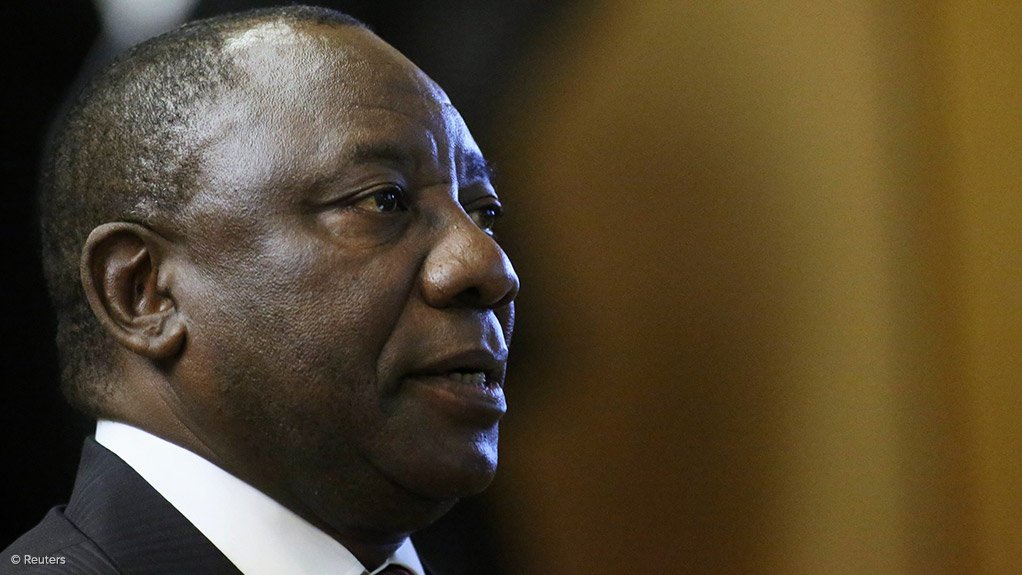Deputy President Cyril Ramaphosa should have used his position to influence warring parties at Marikana in 2012 to negotiate a settlement, the Farlam Commission of Inquiry heard on Monday.
"Since it was your view on August 11, 2012 that the way out was to negotiate. Why was that view not expressed to [Lonmin] management on August 15, and why wasn't it raised with the chairman of the [Lonmin] board?" asked Tembeka Ngcukaitobi, for the Legal Resources Centre.
Ngcukaitobi was cross-examining Ramaphosa at the commission's public hearings in Pretoria.
Ramaphosa, a Lonmin non-executive director at the time, said he believed negotiations would become the focal point when ongoing killings had been halted.
"It's a matter of saying, when was that raised? During the course of all this, all options were considered. One option was to stabilise the situation.
"Once that has happened, negotiations must then ensue. To get out of any difficult situation, you have to negotiate," said Ramaphosa.
Ngcukaitobi asked whether the deputy president believed negotiations would have averted the bloody confrontation between police and protesters on August 16, 2012, which left 34 people dead.
"Do you not think that the proposal of a negotiated outcome should have been raised earlier? Do you not think that if it had been raised earlier, some of the issues we are dealing with in this commission could have been avoided?" he said.
Ramaphosa responded: "The issue of negotiating has to remain prominent in anybody's mind when dealing with a situation of parties seeking a solution.
"Another option which was considered in this case was to make sure there was stability and no further people were killed."
Ngcukaitobi asked whether Ramaphosa could not have used his influence to cajole the warring parties to negotiate for a settlement.
Ramaphosa responded: "It is eminently possible, but we were dealing with a situation from a variety of angles. When I got reports that more and more people were being killed, I got alarmed," he said.
The commission, chaired by retired judge Ian Farlam, is investigating the deaths of 44 people during strike-related violence at Lonmin's platinum mining operations at Marikana, near Rustenburg in the North West, in August 2012.
Thirty-four people, mostly striking mineworkers, were shot dead in a clash with police, over 70 were wounded, and over 250 arrested on August 16, 2012. Police were apparently trying to disarm and disperse them.
In the preceding week, 10 people, including two policemen and two Lonmin security guards, were killed.
On Monday, Ngcukaitobi said there was a wage gap between what Impala Platinum mine and Lonmin were paying their employees at the time.
"How did you think that wage gap could be resolved? Did you think that Lonmin should have upped its offer," he asked.
Ramaphosa said that after meticulously analysing the wages, he realised there were slight differences in what the mining companies paid.
Ngcukaitobi said the wage disparity was the crux of the Marikana unrest. He read out a 2011 Mining Weekly article, penned by Ramaphosa, stating that generic unrest in the mining industry was caused by the failure of mining companies to address socio-economic needs of employees.
"Is that a view you still hold?" Ngcukaitobi asked.
Ramaphosa responded: "I still hold that view. Let me say, this is a collective responsibility. We are dealing here with the legacy of apartheid and colonialism and the migrant labour system embedded in the history of our country.
"Collective action needs to be taken to rid our country of this inhumane system of migrant labour. The labour instability is caused by our collective failure, as stakeholders, to address key problems of working people in mining areas," he said.
Not only mining companies bore the responsibility of addressing miners' socio-economic needs, he said.
A group of protesters seeking to enter the Tshwane council premises converged at the main entrance as Ramaphosa testified.
Some people in the auditorium wore white T-shirts bearing the words "Buffalo Head killed people in Marikana" and "McCyril the killer". Some T-shirts had a drawing of a buffalo head.
These were references to Ramaphosa reportedly once unsuccessfully bidding up to R19.5 million for a buffalo cow, and his ownership of the McDonald's franchise in South Africa.
EMAIL THIS ARTICLE SAVE THIS ARTICLE
To subscribe email subscriptions@creamermedia.co.za or click here
To advertise email advertising@creamermedia.co.za or click here











